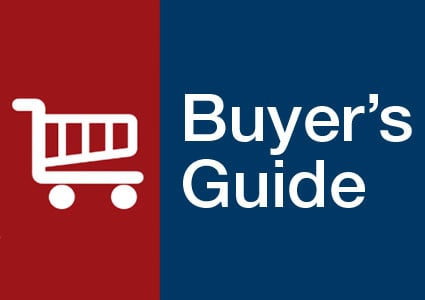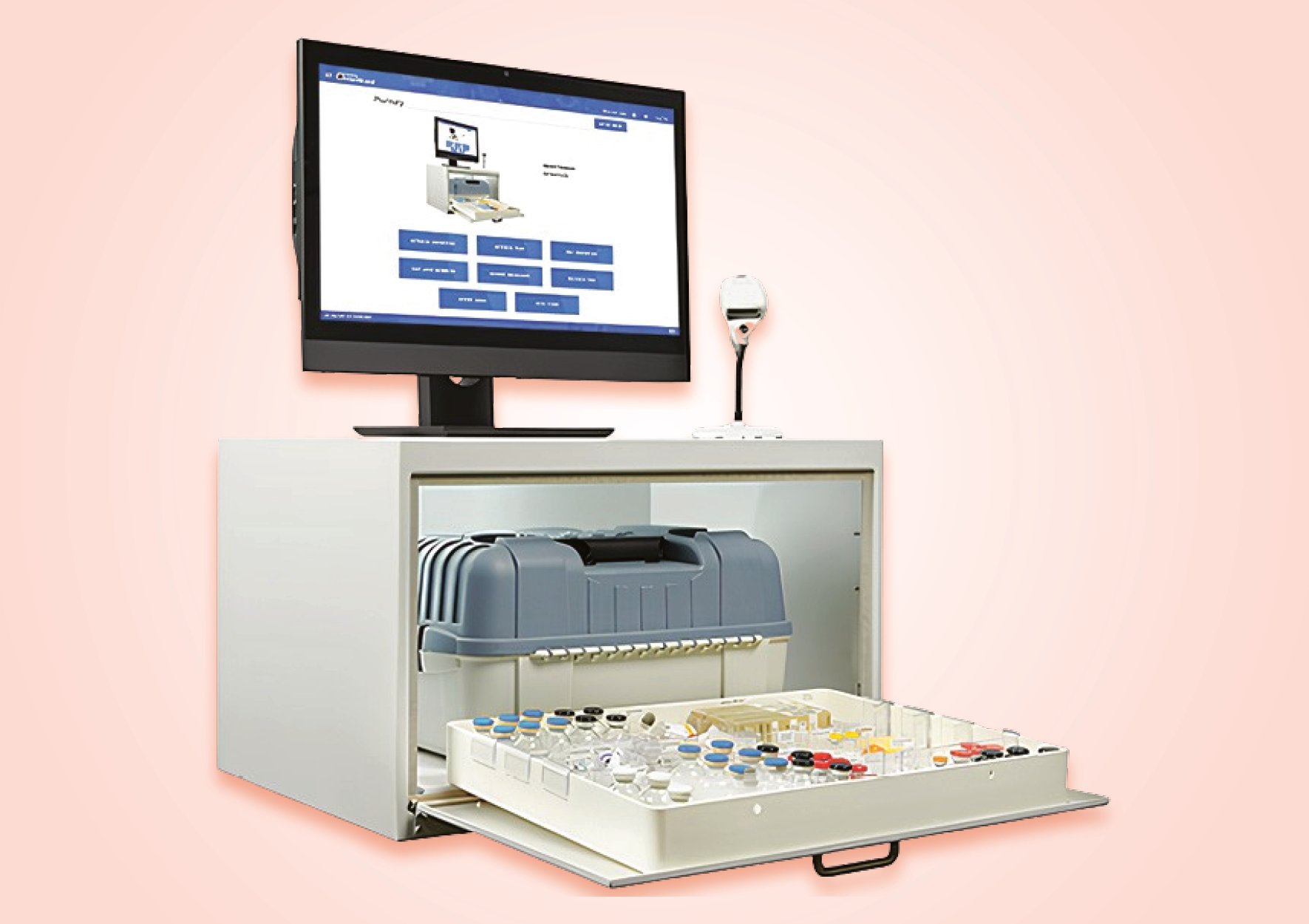- Show Menu
- Contact Us
- FAQs
- Reader Service
- Survey Data
- Survey Winners
- Testimonials
- Upcoming Events
- Webinars
- White Papers
Develop a Proactive Quality and Accreditation Team
Health system specialty pharmacies play an integral role in the increasingly complex patient care journey. It is well documented that health system specialty pharmacies produce improved clinical outcomes, higher levels of patient and provider satisfaction, and financial benefits to patients, payers, and health systems. While the prevalence and importance of specialty pharmacy services have increased tremendously in recent years, there has been a continuous evolution of specialty pharmacy accreditation, regulatory, and payer network access requirements.1-4
As a result of this dynamic landscape and its associated burdens, it is challenging for health systems to establish and maintain specialty pharmacy services, particularly with the many other obstacles faced by frontline teams and operational leaders. Consequently, appropriate resources are necessary to ensure health systems can adapt to frequent changes in accreditation and regulatory standards. In fact, expert stakeholders from the ASHP Specialty Pharmacy State of Practice in Hospitals and Health Systems — Future Directions Summit recommend that health systems allocate dedicated resources within the pharmacy enterprise to support specialty pharmacy regulatory compliance, accreditation, licensure, and policy review.4-6 Despite a documented need for dedicated resources to support these efforts, minimal literature exists regarding the development of a role or team with oversight of these core functions.
QA Team Development
University of North Carolina (UNC) Health is a not-for-profit integrated health system consisting of 20 hospital campuses and 15 retail pharmacies across the state of North Carolina. Within UNC Health, the UNC Shared Services Center (SSC) Pharmacy is a home delivery and specialty pharmacy serving patients in North Carolina, South Carolina, and Virginia, dispensing over 22,000 prescriptions each month. The pharmacy maintains specialty pharmacy accreditation with Utilization Review Accreditation Commission (URAC) and Accreditation Commission for Health Care (ACHC).
In early 2019, SSC Pharmacy leadership recognized the need to dedicate a pharmacist to preparing for an upcoming URAC re-accreditation survey. Initial responsibilities for this pharmacist included collaboration with leadership to ensure accreditation readiness and Medicare Part B compliance. The Quality & Accreditation (QA) team originated from a proposal submitted by an SSC Pharmacy technician to create a new position dedicated to training in specialty pharmacy operations. Due to concerns that pharmacy leadership would be unable to sustain optimal training of new hires while experiencing unparalleled growth, this advanced pharmacy technician role was ultimately approved in 2019. The new technician role was placed under the accreditation and compliance pharmacist to ensure that training complied with accreditation standards and regulatory requirements. The training technician worked with leadership and subject matter experts for each pharmacy role and created a training toolkit to aid in initial and ongoing staff training. The toolkit included detailed procedures, competency assessments, checklists, and additional training tools. Training was thoroughly documented to align with accreditation standards.
Once the pharmacy was successfully re-accredited, leadership identified responsibilities more appropriately scoped under the QA team. Due to their high volume of specialty prescriptions, the SSC Pharmacy received a significant number of third-party payer audits, many of which had 24- to 48-hour due dates. With daily workflow, staff found it difficult to meet those deadlines. To ensure compliance with these payer requirements, this responsibility was shifted to the QA team. Along with meeting all deadlines and avoiding claim recoupment, they turned the task into a teaching tool. As these audits were completed, potential gaps in billing compliance and/or process improvement opportunities were communicated to leadership. These, along with other internal audits, revealed various projects that the team would participate in alongside leadership.
To accommodate the growing volume of audits, projects, accreditation requirements, and training needs, an additional technician was added within the first year. This technician had specialized training in Lean Six Sigma and project management, setting the team up to successfully support projects.
Since then, the QA team has evolved significantly to meet the identified need for resources dedicated specifically to specialty pharmacy accreditation and regulatory compliance. The team now focuses their training efforts on accreditation, regulatory compliance, and third-party payer requirements. This shift created an opportunity to advance the technicians into analyst roles, aligning their responsibilities with their new job description and providing more opportunities for career growth.
Dedicated Team
The QA team currently consists of a pharmacist coordinator and two quality/organizational excellence analysts who report to a system pharmacy manager within UNC Health’s Pharmacy Business Operations service line. In lieu of developing new positions specific to specialty pharmacy quality and accreditation, pharmacy leadership leveraged these previously existing positions in order to minimize barriers and avert delays with establishing the team.
The pharmacist coordinator is responsible for maintaining accreditation and regulatory compliance; completing, validating, and communicating audit results and corrective action plans; and identifying potential quality improvement projects/activities to ensure continuous improvement. The current pharmacist coordinator has over 20 years of pharmacy experience and 13 years of specialty pharmacy experience.
The team’s two quality/organizational excellence analysts are responsible for completing internal (accreditation-specific, regulatory) and external (third party) audits and assisting the pharmacist coordinator in maintaining accreditation readiness and regulatory compliance. The analysts provide support for all the team’s core services, with input provided by the pharmacist coordinator when additional clinical and/or leadership expertise is necessary. The current analysts each have 10 to 20 years of experience in various positions within pharmacy, nearly half of which has been dedicated to roles within specialty pharmacy.
The minimum requirements for these positions are outlined in the TABLE. The roles also require excellent attention to detail, strong collaboration skills, and experience in quality improvement and project management. Each team member has extensive experience with third-party payer and specialty pharmacy accreditation requirements—this and their many years of experience in retail/specialty pharmacy have been major contributors to the team’s success.
Core Services
The QA team currently offers four categories of core services: compliance, accreditation and licensure, finance, and ad hoc projects. Responsibilities that fall under each category include the following:
Compliance
- Perform monthly internal Medicare Part B audits on 5% of pharmacy claims for the SCC pharmacy and one additional high-volume retail pharmacy site
- Perform monthly Medicaid billing and documentation audits on 5 claims each for 9 of the retail pharmacy sites
- Provide Medicare Part B compliance training for all staff upon hire, annually, and where supplemental training needs are identified
Accreditation & Licensure
- Provide initial and ongoing staff training in current URAC & ACHC specialty pharmacy accreditation standards as appropriate to job functions
- Perform mock audits (board of pharmacy, URAC, ACHC)
- Maintain personnel files
- Perform internal documentation audits (initial and ongoing reassessments)
- Monitor quality improvement projects and other performance improvement activities
- Analyze drug utilization review (DUR) trends
- Perform distribution process testing
Finance
- Perform third-party payer claim audits daily, ranging from desktop audits to more complicated on-site audits (eg, audit requiring 1500+ pages of documentation in order to recover $2.6M in potential recoupment)
- Weekly log of scripts audit to identify and provide recommendations for claims that pose negative margin (eg, product selection codes, drug file errors)
Ad Hoc Projects
The QA team leads and contributes to several ad hoc projects, including those that stem both from audit findings and other projects based on institutional needs, for example:
- Conducting the Institute for Safe Medication Practices (ISMP) Medication Safety Self-Assessment within all UNC Health retail pharmacy sites
- Developing standard operating procedures for other pharmacy department teams
- Contributing to a telehealth policy and a COVID-19 vaccine distribution project
- Leading fiscal year financial inventory
Outcomes & Value
The QA team has proven integral to the success of the institution’s specialty pharmacy program (see the SIDEBAR). Among the many benefits realized since the team’s inception are:
- The creation and maintenance of specialty pharmacy specific policies and standing operating procedures
- The creation of a training toolkit to ensure adequate and consistent initial and ongoing training
- The development of monthly internal auditing/monitoring to ensure compliance combined with timely and effective risk communication to support prompt resolution of any issues
- A reduction of any/all risks to maintain compliance readiness status for specialty pharmacy accreditation and regulatory agencies
Having a dedicated team to take on these and other responsibilities allows pharmacy leaders and frontline team members to focus on the expansion of medication access for patients while keeping patient safety at the forefront of operations. It also encourages increased collaboration and sharing of best practices among other UNC Health retail pharmacy locations.
There are additional advantages to having the QA team perform internal audits within retail/specialty pharmacies. Because they are not involved with daily workflow operations, the QA team serves as non-biased, objective auditors. Ownership of all third-party audits by the QA team allows for improved audit response timeliness as well as the ability to track recoupment recovery rates and payer trends, thereby minimizing lost revenue.
Overall, the development of the QA team moved the pharmacy from a reactive to proactive compliance program with a comprehensive focus on regulatory and specialty pharmacy accreditation compliance.
Conclusion
As specialty pharmacy continues to evolve with its many regulatory and accreditation requirements, having a team dedicated to these efforts is essential. Due to the observed value of the QA team within specialty pharmacy, there have been increased requests to expand services to other UNC Health retail pharmacy locations. To meet this growing demand, the team aims to increase its labor resources, which will allow for its continued dedication to maintaining a high quality, effective, and proactive compliance program.
References
- Zuckerman AD, Whelchel K, Kozlicki M, et al. Health-system specialty pharmacy role and outcomes: A review of current literature. Am J Health-Syst Pharm. 2022:zxac212. Epub ahead of print.
- Bonome, H. Best practices for specialty pharmacy accreditation. Pharm Purch Prod. 2021;18(5):26.
- Peeples L. Leveraging data to gain a specialty edge. Pharm Pract News. 2021. https://www.pharmacypracticenews.com/Article/Article?articleID=65507. Accessed September 1, 2022.
- Barrett J. Managing compliance in specialty pharmacy from a regulatory, accreditation perspective. Spec Pharm Times. 2019;11(6). https://www.pharmacytimes.com/view/managing-compliance-in-specialty-pharmacy-from-a-regulatory-accreditation-perspective. Accessed September 1, 2022.
- Campbell U, Chen D, Rim MH. Proceedings of the ASHP specialty pharmacy state of practice in hospitals and health systems — future directions summit. Am J Health-Syst Pharm. 2021;78(19):1801-1824.
- Charting a course for health-system specialty pharmacy. Am J Health-Syst Pharm. 2021;78(19):1792-1794.
Angela Clark, PharmD, is the pharmacist coordinator of the quality and accreditation (QA) team at UNC Health. She graduated from UNC Eshelman School of Pharmacy in 2003 and has been with UNC Health since 2015.
Jessica Chastain, CPhT, is a quality/organizational excellence analyst with the QA team at UNC Health.
Jennifer McCloy, CPhT, Kaizen Coach, is a quality/organizational excellence analyst with the QA team at UNC Health.
Charles Summerlin, PharmD, MS, BCPS, is the system pharmacy manager of human resources and retail compliance/accreditation at UNC Health. He earned his doctor of pharmacy degree from the University of Maryland School of Pharmacy and completed his PGY1/PGY2/MS with UNC Hospitals and the UNC Eshelman School of Pharmacy.
SIDEBAR
Case Study
In late 2021, a third-party payer audit revealed a trend of missing documentation when overrides were used in the claim. Payers require thorough documentation when these overrides (ie, vacation, lost/stolen, DUR) are used. Documentation must include the time/date stamp, the staff member documenting, and specific elements explaining the reason for the override. The team created a training module that was disseminated to the pharmacies to clarify the documentation requirements by override type. This, along with an update to the electronic health record that automatically added the username and time/date stamp, contributed to the QA team’s 99.9% recoupment avoidance rate and safeguarding over $7.75M in revenue that potentially would have been recouped by the payer without dedicated oversight of third-party audits.
Like what you've read? Please log in or create a free account to enjoy more of what www.pppmag.com has to offer.









